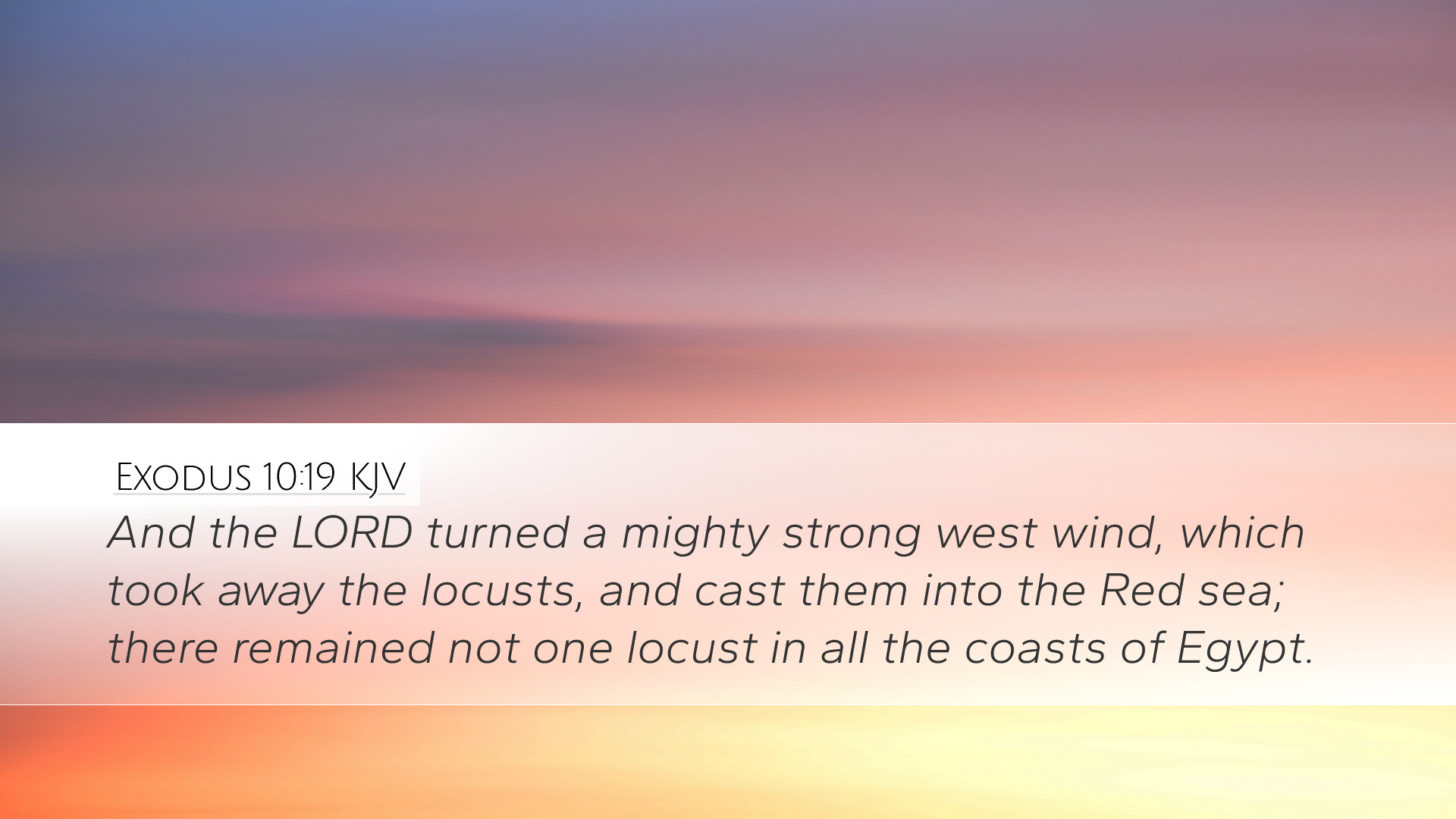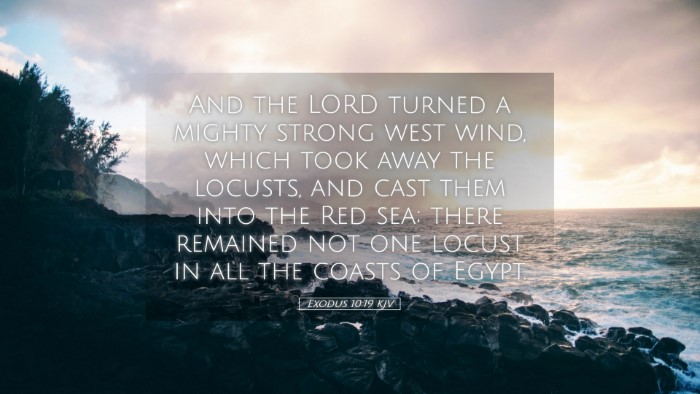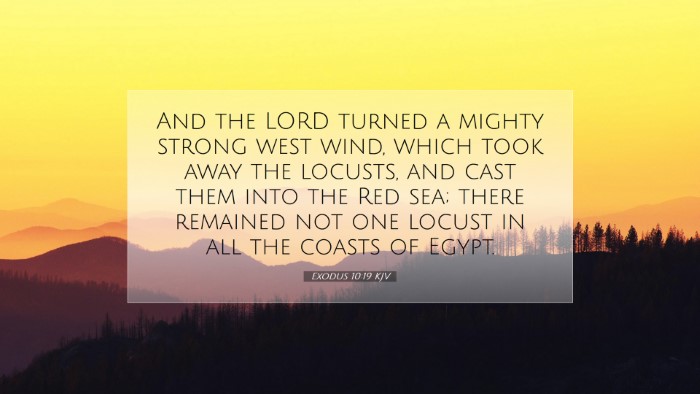Exodus 10:19 Commentary Summary
Exodus 10:19 states:
"And the Lord turned a mighty strong west wind, which took away the locusts, and cast them into the Red sea; there remained not one locust in all the coasts of Egypt."
Introduction
This verse concludes the eighth plague of Egypt, where God uses a strong west wind to remove the plague of locusts that had devastated the land. This divine intervention not only demonstrates God's power but also serves as a reminder of His sovereignty over nature.
Exegesis of the Text
In examining Exodus 10:19, it is crucial to understand its context within the narrative of the plagues. The previous verses describe the devastating effects of the locusts on the Egyptian economy and the agricultural landscape.
Mighty Wind as Divine Instrument
Matthew Henry notes that the "mighty strong west wind" symbolizes God's direct intervention. This wind is not merely a natural occurrence but rather a manifestation of God's will. Henry emphasizes that God's use of natural elements calls attention to His power and authority over creation.
Purpose of Removing the Locusts
Albert Barnes highlights that by removing the locusts completely, God not only relieves the Egyptians' suffering but also discloses His intention to liberate His people. The destruction of the locusts signifies a turning point; it foreshadows Israel's impending exodus from Egypt.
The Red Sea Reference
Adam Clarke remarks on the importance of the Red Sea in this narrative. The casting of the locusts into the sea emphasizes God's totality of control over creation. Clarke argues that this act serves as a precursor to the later miraculous events during Israel's escape, illustrating that as God dealt with the locusts, so He would ultimately deal with Pharaoh and his army.
Theological Implications
This verse contains several theological implications relevant for biblical scholars, students, and pastors.
- Divine Sovereignty: God's ability to control the natural world reveals His ultimate sovereignty over all creation. This serves as a reminder of His omnipotence.
- Deliverance and Judgment: The removal of locusts parallels God's plan for deliverance for His people. It signifies judgment on Egypt and the oppression of God's chosen ones.
- God's Faithfulness: The complete eradication of locusts illustrates God's faithfulness to His promises, particularly His promise of liberation to Israel.
Practical Applications
For pastors and student of theology, the commentary on this verse offers practical applications:
- Encouragement in Trials: Just as the Israelites faced the devastating effects of the plagues, believers today can find hope in knowing that God is actively working to remove obstacles in their lives.
- Trust in Divine Providence: The strong wind that removed the locusts can symbolize God's ability to bring about change in difficult situations. This instills confidence in God's providential care.
- Awareness of Judgment: The complete devastation of the locusts serves as a reminder of God's judgment against rebellion and disobedience, prompting self-reflection within the church.
Conclusion
Exodus 10:19 is a powerful verse that captures the essence of God's interaction with His creation during the plagues of Egypt. The commentary from esteemed theologians highlights significant aspects of divine sovereignty, deliverance, and judgment. As ministers and scholars engage with this text, they are reminded of the consistent theme throughout Scripture: God is always in control, working tirelessly for the deliverance of His people.


